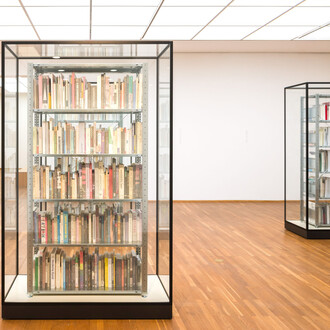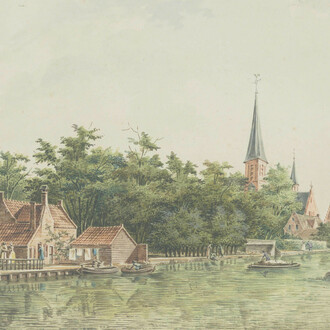In the 1970s, when German society was still largely unwilling to talk about fascist perpetration, the cultural scientist Klaus Theweleit published his book Männerphantasien (English title: Male fantasies), a pioneering analysis of the connections between masculinity and fascism: Based on Freikorps-literature from the 1920s, he developed a clear-sighted association between the destructive image that the “soldierly man” had of himself and of women, shining a new light on the emergence of National Socialism by analysing the amalgamation of sexuality, gender and violence prevalent in this image.
Around 45 years after its first publication, director Theresa Thomasberger will create a stage play baes on Theweleit’s work: For Thomasberger and her team, this epochal analysis is the foundation for an investigation of contemporary manifestations of fascoid masculinity, the denigration of women in our media-informed reality and current abstruse forms of collectivity.
Because: While the ideal of the “strong man” appears obsolete in some circles, recent wars have created new warrior-figures. Self-empowered hordes are storming political institutions and fuel the authoritarian backlash. In the online realm, too, equal rights is seen as oppression: The community of Incels – men who are living involuntarily sexless lives – believe that their gender gives them the right to retain women and sexuality; angry alpha-males and misogynist pick-up-masters invoke unattainable notions of masculinity and, at the same time, desperately fail at realising these very notions. Instead of identifying these ideals as the problem, these groups fan the fear of feminist resistance, which is currently gaining great momentum.
What is the impact of Theweleit’s texts today? What connecting factors do they offer? In order to explore these questions, Deutsches Theater has expanded authorship by adding three contemporary voices. Engaging with Theweleit’s work, dramatists Svenja Viola Bungarten, Ivana Sokola and Gerhild Steinbuch will develop additional texts to Male Fantasies, and provide further analysis from a contemporary female perspective.
Gerhild Steinbuch's text uses poetic language to portray a mother perpetrator: a woman whose son commits sexualised violence against women, who becomes a perpetrator and thus shatters his mother's image of herself and others. In Ivana Sokola's contribution, an exhausted male voice choir questions its own sense of belonging in society and searches for its place between the choral society, voluntary fire brigade and fishing holidays. Svenja Viola Bungarten looks at the right-wing fringes of internet culture: in her text, an influencer tells her followers about her personal transformation - from raging feminist to trad wife.
















